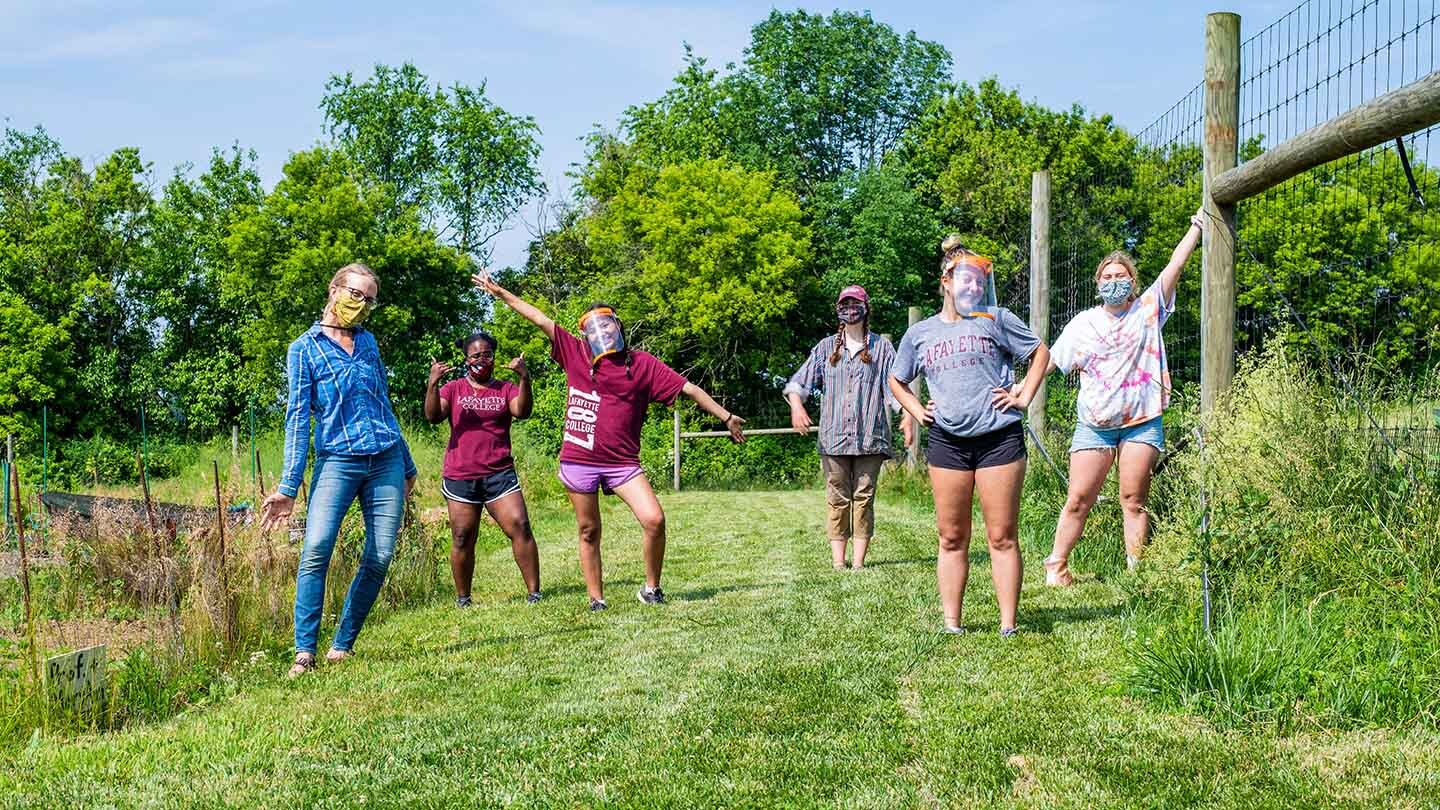Notice of Online Archive
This page is no longer being updated and remains online for informational and historical purposes only. The information is accurate as of the last page update.
For questions about page contents, contact the Communications Division.
Campus farm offers weekly fresh produce baskets, accepts donations to enhance its support of Pard Pantry
By Katie Neitz
Missing fresh strawberries, spinach, and tomatoes from LaFarm’s weekly on-campus farm stand? Thanks to our student farmers and volunteers, you can still enjoy fruits and vegetables grown at Lafayette’s campus farm.
Lisa Miskelly, assistant director of food and farm, is fulfilling orders for produce baskets, which can be picked up at LaFarm or delivered to College Hill homes on Wednesday afternoons. Each basket costs $15 and contains a variety of in-season produce. You can order week to week—a long-term commitment is not required.
Here’s how it works:
- Sign up to join LaFarm’s weekly mailing list, and place your order by 8 a.m. Tuesday.
- Select delivery, contactless pickup, or make a donation:
- Delivery: For a $3 fee, baskets can be delivered to College Hill residents who place a $15 minimum order. Deliveries are made 2-4 p.m. Wednesdays.
- Contactless pickup: Available to anyone at LaFarm Wednesdays 3-5 p.m.
- Donation: Your donation will support the campus Pard Pantry. “We are actively donating vegetables to Pard Pantry every week for students still living on campus and cooking for themselves,” Miskelly says.

Student farmers and volunteers work to harvest produce safely at LaFarm
LaFarm currently is being staffed by four Vegetables in the Community interns, a student volunteer, and five students employed as farmers. Students are actively working to harvest produce, remove weeds, and prepare for fall planting—while maintaining safe distancing guidelines.
“Each purchase directly supports student-grown produce and regenerative agriculture,” says Miskelly.
“The garden continues to offer a space for our students to engage in discussions from politics to book recommendations to life goals to favorite meals; after months with limited face-to-face interactions, we welcome this place for safe human connection, sharing, and dialogue. Know that your food was grown by humans as they grappled with the big questions and expanded their relationships with insect life just slightly beyond their comfort zones.”
Learn more about Lafayette’s Office of Sustainability.
